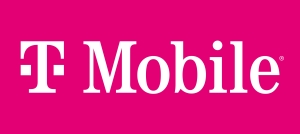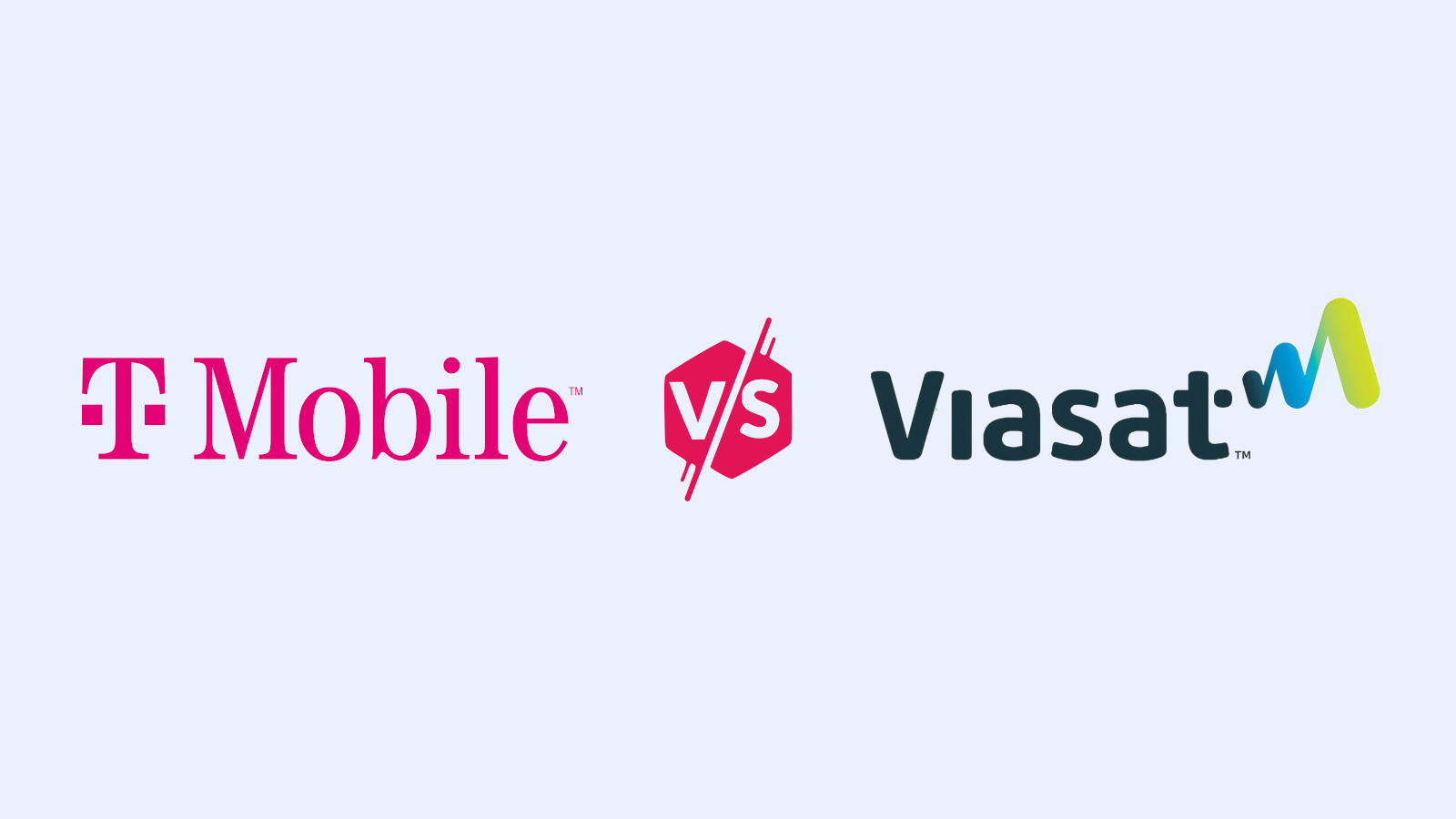Best Unlimited Hotspot Plans of 2023
Unlimited hotspot data is hard to find—here are your best options.
Jul 31, 2023 | Share
Brand Guides
-
Best overallVisible+ phone plan
- $45.00/mo.
- Unlimited hotspot data (with limitations)
- Talk/text included
- Max 5Mbps speeds
-
Best for speedVerizon Pro
- $60.00/mo. (w/ existing Unlimited phone plan), $90.00/mo. (w/out phone plan)
- Easy access to ultrafast 5G network
- Lots of data for the price
- Much higher price for non-Verizon phone customers
-
Best prepaid optionAT&T 50 GB
- $55.00/mo.
- Lots of data for low price
- Large nationwide network
- Limited hotspot options
-
Best budget planT-Mobile 2GB
- $10.00/mo.*
- Incredibly low price
- Widest 5G availability
- Small amount of premium data
Data effective 7/31/23. Offers and availability may vary by location and are subject to change.
*Per connected device with AutoPay. Plus Taxes & fees.
An unlimited hotspot plan gives you a lot of flexibility to access Wi-Fi while you’re on the go. Without strict data limits, you can take on big tasks like playing online games and making video calls without having to worry about extra fees or slowed speeds. You have more flexibility to tether multiple devices to one hotspot, and you can your hotspot a lot more often–even on a regular basis.
Take a look at our guide below to see which cellular carriers offer the best unlimited hotspot plans.
Our pick: Which unlimited hotspot data plan is best?
Visible’s Visible+ cell phone plan is the best plan you can get for unlimited hotspot data. The plan costs a truly cheap $45 month, and you get unlimited hotspot data all month long for a single device with max 5Mbps speeds. These stripped-down features make Visible+ an excellent option for single users who want to tether their laptop for daily Wi-Fi use.
Pro tip:
You’re going to need a hotspot to go with your hotspot data plan, of course. Take a gander at our favorite mobile hotspots.
Best unlimited hotspot plans
| Mobile carrier | Plan | Best for | Price | Premium data cap | Order online |
|---|---|---|---|---|---|
|
| Visible+ phone plan | Best overall | $45.00/mo. | Unlimited (max 5Mbps speeds, only one device can connect at a time, speeds may slow after 50GB during network congestion) | View Plan |
| Verizon Pro | Best for speed | $60.00/mo. (w/ existing Unlimited phone plan), $90.00/mo. (w/out phone plan) | 100GB of 4G LTE/5G, then reduced to 600 Kbps | ||
| AT&T 100GB | Best prepaid plan | $55.00/mo. | 100GB | ||

| T-Mobile 2GB | Best budget plan | $10.00/mo. | 2GB (can order more GB w/ data pass) | View Plan |
Data effective as of 7/31/23. Pricing and speeds are subject to change. Not all offers available in all areas.
What should you look for in an unlimited hotspot data plan?
You should look for a hotspot data plan that gives you a generous amount of premium data at an affordable price. Premium data is data you get that works off the cellular provider’s 4G LTE and 5G network, giving you fast speeds and lower latency. Usually you’ll get a set amount of premium data, after which you’ll revert to much slower speeds.
You’ll also need a plan that works over a large-enough cellular network to give you consistent connectivity wherever you use it. Some hotspot plans work with only certain hotspot devices, so of course you’ll want a plan that works with a good-quality device.
Take a look at our expanded section farther down on this page for more info about specs and features.
Pro tip:
Depending on what you use your hotspot for, you may be just fine with a hotspot plan that gives you a set amount of data. Get the best recommendations in our best hotspot plans guide.
Is there a truly unlimited hotspot plan?
Yes, you can get unlimited hotspot plans from Visible, T-Mobile, Verizon, and AT&T. Each cellular carrier gives you a plan that lets you always tether a device to your hotspot. You get a set amount of monthly premium hotspot data that connects you with high speeds (think: 30–200Mbps) over 4G LTE and 5G networks. After you’ve used the premium data, your connection drops to a slower speed.
Data is a bit of a hot commodity in the cellular space. Cellular carriers don’t have the same internet capacity as traditional internet providers. Wireless internet speeds are slower and mobile infrastructure is mostly built for serving phone users, not internet customers, so data comes at a higher price and you get less. So you always have some limitations on your hotspot data, even on an unlimited hotspot plan.
Best overall—Visible+ phone plan
$45.00/mo.
- Premium data cap: None (max speeds of 5Mbps, connects only one device at a time, speeds slowed after 50GB)
- Compatible hotspots: Cell phone hotspot
Data as of 7/31/23. Offers and availability may vary by location and are subject to change.
Visible is an “MVNO” that gives you cellular coverage from Verizon’s network. Its Visible+ phone plan is cheaper than pretty much any postpaid phone plan and lets you use as much hotspot data as you like over your cell phone’s hotspot. That means you don’t have to invest in a separate Wi-Fi hotspot to tether a device like a laptop or tablet.
The plan has some limitations: you can only connect one device at a time, and speeds max out at a slow 5Mbps, well below average 4G speeds of 30 Mbps. While Visible used to boast of a truly unlimited hotspot offering, now the carrier says your speeds may slow during times of network congestion after you use up that 50GB. Still, this is an incredible deal and works great for single users.
 Pros:
Pros:
- Unlimited data for hotspotting
- Talk/text included
 Cons:
Cons:
- Hotspot connection for one device only
- Slow speeds
Best for speed—Verizon Pro
$60.00/mo. (w/ existing Unlimited phone plan), $90.00/mo. (w/out phone plan)
- Premium data cap: 100 GB of 4G LTE/5G, then reduced to 600 Kbps
- Network access: 4G LTE, 5G
- Compatible hotspots: your phone’s hotspot, Verizon Jetpack MiFi 8800L, Inseego MiFi M2100 5G UW, Verizon Global Modem USB730L
Data as of 7/31/23. Offers and availability may vary by location and are subject to change.
This is the plan to get if you’re looking for maximum hotspot capability. The Verizon Pro data plan comes with a hefty, 100-GB chunk of high-speed internet data to work with all month. It also lets you tap into the fastest 5G speeds possible, making this plan an excellent option for frequent hotspot users.
Verizon’s so-called Ultra Wideband 5G (the fastest portion of its 5G network) has very limited availability, so you probably aren’t able to see those dazzling speeds unless you’re in select parts of major American cities. You also need a 5G phone to access Ultra Wideband.
 Pros:
Pros:
- 5G Ultra Wideband access
- Lots of data
 Cons:
Cons:
- High price for non–Verizon phone customers
Pro tip:
The best way to get boosted speeds is to access a 5G network—and for that you need a 5G hotspot. Take a look at the best 5G hotspots to see prices and features.
Best prepaid plan—AT&T 50 GB
$55.00/mo.
- Premium data cap: 50 GB/mo.
- Compatible hotspots: your phone’s built-in hotspot, Nighthawk M1 Mobile Hotspot Router, Nighthawk 5G Mobile Hotspot Pro, Unite Express 2
Data as of 7/31/23. Offers and availability may vary by location and are subject to change.
With this plan, you get a decent amount of data for a decent price. It doesn’t knock your socks off, but it’s sufficient to get you a weekend or two of binge-watching Netflix at a vacation home or cover daylong work sessions during a weeklong trip. If you run out, every additional 5 GB of data costs $10.
 Pros:
Pros:
- Good price
- Excellent 5G speeds
 Cons:
Cons:
- High price for 5G hotspot
- Limited availability (plan must be ordered in-store)
Best budget plan—T-Mobile 2GB
$10.00/mo.
- Premium data cap: 10GB (add more any time with a “data pass”)
- Compatible hotspots: Inseego MiFi X Pro 5G, Alcatel Linkzone
Data effective 7/31/23. Offers and availability may vary by location and are subject to change.
*Per connected device with AutoPay. Plus Taxes & fees.
Keep this plan in mind if you only use your hotspot a couple days per month. As the name suggests, T-Mobile’s 2GB data plan comes with 2GB of premium data—a modest amount but plenty to cover a couple days of streaming and video calls.
After you use up the data, your speeds get significantly reduced. So this plan isn’t ideal if you spend a lot of time hotspotting throughout the month. But you can re-up with more premium data whenever you want, simply by ordering a “data pass.” And this plan is so cheap upfront that you may end up spending less on data than you would with another plan even after paying for more premium data.
 Pros:
Pros:
- Extremely low price
- Great 5G coverage
 Cons:
Cons:
- Small amount of premium data
Pro tip:
You can use Zoom even if your internet speed is as low as 1.2 Mbps. Take a look at our Zoom speed guide to learn how to improve your Zoom performance on a slow connection.
Unlimited hotspot plan specs and features
Unfortunately, most hotspot plans don’t give you unlimited data. Cellular providers don’t deliver internet at the same capacity as broadband internet service providers, so many standalone data plans come with fairly strict data limits, and your speeds will be slowed down to a crawl once you use up your data.
Still, you can find solid options and workarounds from a range of wireless providers. Your best bet is to look for a data package that comes with a sufficient amount of data for a relatively manageable fee. You’ll also want a package that gives you some flexibility.
In some cases, you may be better off paying a small fee for a small amount of data so you don’t end up spending a lot upfront on data you won’t end up using. Then you can buy more data if you need it once you run out.
Cell phone hotspot vs. mobile hotspot—which is better?
A mobile hotspot is better for regular hotspot users who connect lots of devices and consume a lot of data.
Granted, some of the best hotspot plans are cell phone plans that come with hotspot data. You can simply use your phone as a hotspot when you need it, saving you money because you won’t have to buy a separate hotspot device. This is the best way to go if you use a hotspot only every once in a while.
But you can also sign up for a standalone data plan meant to be used with a separate hotspot device. A mobile hotspot connects a lot more networking devices than a cell phone and has a better range.
5G hotspots also have Wi-Fi 6, making them really efficient as they connect lots of devices. It’s worth investing in a hotspot if you’ll use it on a regular basis and routinely share the connection with friends, family, classmates, or coworkers.
Pro tip:
If you’re not sure how to use the hotspot on your phone, read our explainer on phone tethering to see how it’s done. Don’t worry—it’s simple!
Can you use a hotspot for home internet?
We don’t recommend using a hotspot for home internet because it’s much more expensive than a broadband plan from an internet service provider. You’ll also have a lot less data on a hotspot than you would on a fiber, cable, or DSL internet plan.
In most cases, we recommend using a hotspot as a temporary solution for when you’re traveling or working away from the home or office. However, a hotspot would be useful if you live in an RV because it gives you a portable internet option that internet providers can’t, uh, provide.
A hotspot could be a good way to go if you live in a rural area where your only other option is satellite internet. Still, most users would be much better off with 4G LTE or fixed-wireless internet because the pricing and speeds are more in line with broadband providers.
Pro tip:
If you’re looking for a wireless home-internet setup, then definitely look into 5G home internet—see our guides to Verizon 5G Home Internet and T-Mobile Home Internet for details on speeds, pricing, and availability.
Do you need a 5G hotspot?
A 5G hotspot is not necessary for everyone, but it’s great for groups and users with high-bandwidth needs.
5G hotspots are a lot more powerful and versatile than their 4G-only counterparts. They connect a lot more devices—between 30–32 versus the 15 or 20 that 4G hotspots can connect. They deliver much faster speeds. And they have Wi-Fi 6, which ensures that your connection stays strong even if you’re connecting a bunch of devices all at once.
How long does 100 GB of data last?
A hotspot plan that includes 100 GB of premium, high-speed data lasts about a week or less if you’re using it every day, but it lasts several weeks or even a month if you just use it occasionally.
Cell phone companies have less data to offer to customers overall than residential internet service providers, so even unlimited hotspot data plans often come with restrictions and caps on high-speed data usage.
Measuring data usage for different hotspot tasks
| Activity | How much data it uses | How much it takes to use 10 GB | How much it takes to use 100 GB |
|---|---|---|---|
| Checking 25 emails | 10 MB | Check 25,000 emails | Check 250,000 emails |
| Posting to social media | 90 MB per hour | 111 hours (4.6 days) | 1,111 hours (46 days) |
| Streaming music | 55 MB per hour | 181 hours (7.5 days) | 1,818 hours (75 days) |
| Multiplayer gaming | 200 MB per hour | 50 hours (approx. 2 days) | 500 hours (20 days) |
| Downloading a six-page PDF | 5.9 MB | Download 1,694 PDFs | Download 16,949 PDFs |
| Downloading an HD movie file | Approx. 4 GB | Download two movies | Download 25 movies |
| Downloading video game or game update | Approx. 20–60 GB | You can’t even download one game | Download 1–5 games |
| Making a video call in SD | 340 MB per hour | Make 29 hour-long calls | Make 294 hour-long calls |
| Making a video call in HD | 2 GB per hour | Make 4 hour-long calls | Make 50 hour-long calls |
| Streaming video in SD | 500 MB per hour | Stream 20 hours of video | Stream 200 hours of video |
| Streaming video HD | 2 GB per hour | Stream 5 hours of video | Stream 50 hours of video |
| Streaming video in 4K | 8 GB per hour | Stream 1.2 hours of video | Stream 12.5 hours of video |
Data from Omni’s data usage calculator.
Small tasks like checking email, streaming music, and even playing online games don’t have a major impact on your monthly data usage. But watch out when you stream video, make video calls or download large files because all of those activities can eat up your premium data real quick.
Stick to streaming and making video calls in SD resolution to preserve your high-speed data.
Activities to avoid when using a hotspot:
- Posting large files to a server
- Downloading large video game files
- Making video calls in HD
- Streaming video in HD or 4K
- Hosting a livestream
FAQ about unlimited hotspot data plans
Is there an unlimited hotspot plan?
Verizon, T-Mobile, AT&T, and Visible all have unlimited hotspot plans. But each plan comes with caveats and limits on premium data. It’s hard to find a hotspot plan with no limits on speeds whatsoever, but you can get by well with a plan that gives you plenty of premium data and the option to add more data when you need.
Sources
- Francesco Rizzato, Opensignal, “5G User Experience Report,” April 2021. Accessed May 12, 2021.
Author - Peter Holslin
Peter Holslin has more than a decade of experience working as a writer and freelance journalist. He graduated with a BA in liberal arts and journalism from New York City’s The New School University in 2008 and went on to contribute to publications like Rolling Stone, VICE, BuzzFeed, and countless others. At HighSpeedInternet.com, he focuses on covering 5G, nerding out about frequency bands and virtual RAN, and producing reviews on emerging services like 5G home internet. He also writes about internet providers and packages, hotspots, VPNs, and Wi-Fi troubleshooting.




